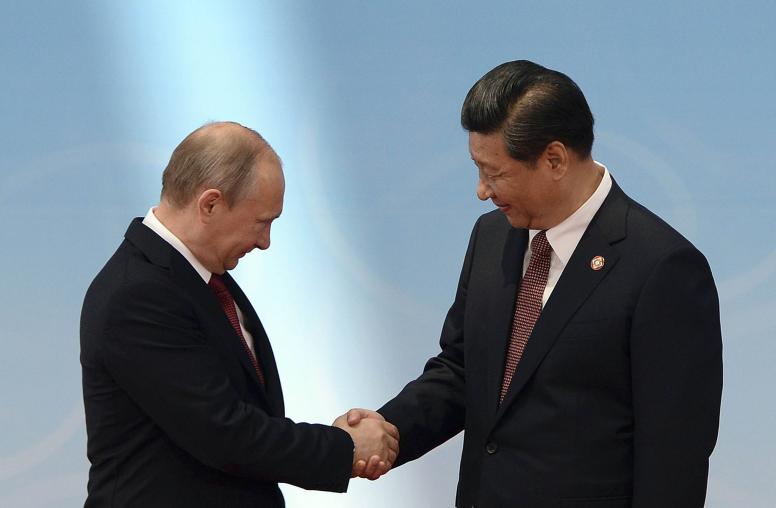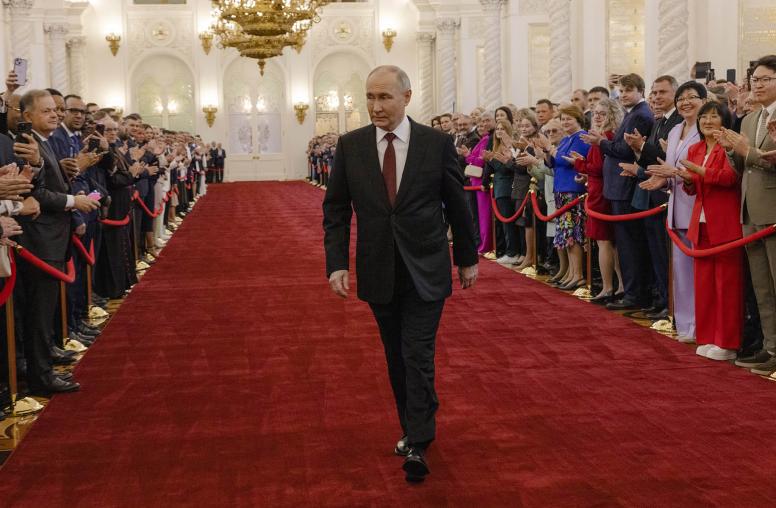A ‘Monumental Step’ on Ukraine’s Path to Europe
The EU’s decision to begin accession talks with Ukraine is a sign that the country is on the right path on reforms.
In a surprise move, the European Union on December 14 agreed to start accession talks with Ukraine. Ukrainian President Volodymyr Zelenskyy described the news as “a victory of Ukraine … a victory that motivates, inspires and strengthens.”

Hungarian Prime Minister Viktor Orbán, who is seen as close to Russian President Vladimir Putin, is vehemently opposed to EU membership for Ukraine. However, Orbán decided to walk out of the room when EU leaders voted on starting accession talks — effectively abstaining from the vote. Orbán later threatened to “slam the brakes” on the accession process. Hours after the accession process vote, Hungary blocked €50 billion in EU aid to Ukraine.
USIP’s Katie Ruppert discussed the significance of EU membership for Ukraine, and the way ahead.
What led the EU to vote in favor of accession talks for Ukraine?
Ruppert: The EU has supported Ukraine’s application for membership since June 2022 when it offered Ukraine (and Moldova) candidate status. The Ukrainians have been working since then to make the changes necessary to progress to the next step in the accession process.
The EU requires that any prospective member state meet certain political and economic benchmarks to join. These are often extensive and require everything from strong democratic institutions to an independent judiciary to a competitive, vibrant financial system. In its recommendation, the EU cited significant progress on these benchmarks since 2014.
It’s really a testament to the Ukrainian government and the Ukrainian people that they were able to complete so many reforms at such a record pace. All but one EU member — Hungary — agreed on December 14 that Ukraine was ready to progress to the next step — actual negotiations leading to membership. Hungarian Prime Minister Viktor Orbán had threatened to stop this decision, but the collective pressure of the other 26 members forced him to back down and allow the decision to go forward. This is a monumental step on Ukraine’s path to Europe and away from Russia.
What benefits will Ukraine get from EU membership?
Ruppert: Beyond the obvious economic and social benefits, EU membership locks Ukraine into Europe, forever precluding Russia from controlling Ukraine as Vladimir Putin is obsessed with doing. Ukraine belongs in Europe.
What are the next steps in the membership process? Is it smooth sailing from now on for Ukraine?
Ruppert: Accession is a yearslong process, but the Ukrainians are absolutely determined to get there — they say in two years. The European Commission’s report cited that Ukraine still needs to work on judicial reforms and strengthening its economy to better function within EU economic institutions, although the commission itself acknowledged that the latter is largely due to the conflict.
Are there implications for Ukraine’s NATO ambitions?
Ruppert: It definitely helps. Ukraine has just received formal approval from EU members that it is on the right path on reforms and that Brussels and member states want to welcome it fully into the European community. With the EU membership momentum, Ukraine is looking toward the NATO summit in Washington next July to receive an invitation to begin negotiations that would lead to NATO membership when the war ends.
There are different requirements for EU membership and NATO membership — one is more focused on political and economic and the other on military and security — but it’s definitely a boost for Ukraine’s Euro-Atlantic ambitions.



